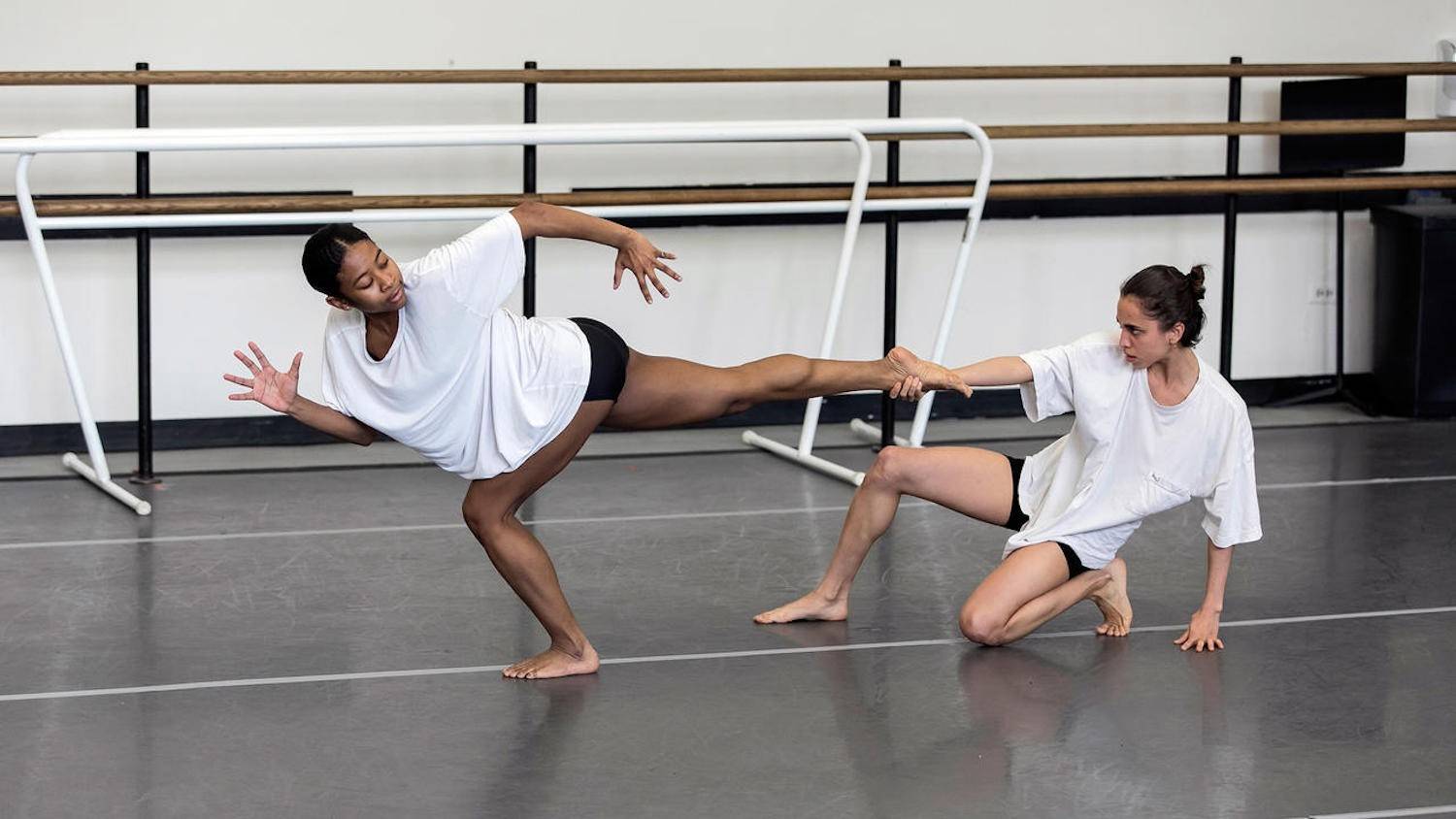How Do You Start Being A Dancer? -Model Factory
- 12 May 2022
- Dancers
1. Receive Comprehensive Training
You don't need any qualifications or degrees to become a professional dancer, but training is an important factor. Professional dancers begin their training at the age of five and audition for permanent work at the age of 18. The training helps in the development of the techniques needed to convert muscle strength and talent into a profession. Dance companies and performing arts schools provide students with the experience they need to gain entry into a professional dance company. Those who are new to dance should start with ballet classes as they provide a great foundation for gaining the strength, muscle memory and flexibility to help them with any dance style.
2. Consider Getting a Bachelor's Degree
It is not mandatory to have a degree to become a professional dancer, but mastering dance can give you experience in different dance styles. You also have the option to focus on a specific dance. A variety of universities and colleges offer majors in dance through fine arts or theater departments. In a dance major, you learn about:
Choreography: You learn performance skills through various dance techniques and ways of expressing yourself through choreography.
Production: As a student, you learn about the processes of backstage production. This may include sound operation, how to operate a light board, costume, lighting design and stage management.
Dance History: You learn about the origins of dance and how people from different continents view dance from a social, ceremonial and cultural perspective.
Teaching: You learn to develop teaching skills to teach classes to people from different age groups and communities.
Movement and Body Alignment: You learn about muscle coordination and body posture.
3. Gain Experience
If you want to increase your chances of getting hired as a professional dancer, you should consider relocating to a city where entertainment thrives. However, take the time to research arts communities in your area where you can volunteer to dance. You can also gain experience by:
Taking classes: Attending dance classes helps you build your craft, stay physically fit and gain more experience. Dance classes also increase your chances of getting booked during auditions because the director or choreographer may be familiar with your work or have experience working with you.
Attending Workshops: Most dance workshops are conducted by established choreographers and members of dance companies. The choreographers are always attentive to see who is following the instructions and improvising. Always try to make a good impression while attending the workshops as this may lead to opportunities for performance in the future.
4. Know About Union Jobs
Large dance companies are affiliated with a union, and television, film, and Broadway-related jobs are union jobs. You must have a union card to be eligible for the audition. A union card identifies you as a legitimate member of a union and allows a union to represent you. Here are some associations that the dancers represent:
- Screen Actors Guild/American Federation of Television and Radio Artists (SAG-AFTRA): They represent dancers, recording artists, new writers, stunt performers and other media professions.
- Actor's Equity Association (AEA): They represent Broadway shows.
- American Guild of Musical Artists (AGMA): They represent the New York City Ballet.
- American Guild of Variety Artists (AGVA): They represent performing artists.
5. Find a Talent Agent
Establishing yourself as a professional dancer can be challenging; This is why most dancers decide to work with a talent agent. A talent agent is a professional committed to helping clients navigate the entertainment industry and helping their clients find auditions and submit dance reels and resumes. They ease the process of pursuing a professional dance career. You should take the time to research and find a reputable agent.
A consortium usually represents a respected agent. Laws are different in different states regarding talent agents, but an agent must not request any payment from you. They usually get a 10% deduction of your earnings when you book a job. You need to find an agent who shares your vision and is interested in you. Step one is to ask other dancers or choreographers for recommendations, or you can research agency websites to see what types of clients they represent. Before applying to your ideal agency, you should have these three things ready:
Recommendation letter: You can ask your dance teacher to write a recommendation letter that highlights your strengths.
Resume: Your education and performance in your resume outine that showcases your style and talent.
6. Build Your Resume
When you go for auditions, some may require your resume. Your dance resume should have important details, including:
Dance Reel: This is a short compilation of video footage that showcases your skills and experience as a dancer. It is usually a few minutes long. You must have a dance reel regardless of which production or project you apply for.
Headshots: Current, professional headshots are needed because they help choreographers, agents and casting directors remember you. Headshots also provide choreographers and directors with an easier way of deciding which dancers may be the best fit for the company or production. Your headshots must present your current look and must be clear.
Resume: Your resume should be easy to read, precise and concise. It should include your full name, phone number, email address, union status and dance experience.
7. Attend Auditions
Auditions are a massive part of a dancer's life. You get to showcase your skills and talents to industry professionals. The process can be overwhelming whether you are auditioning for a dance company or college, but preparing for them can ease the process and reduce stress. Here are some things that can help the audition process:
Go Over The Audition Application: Many application forms provide essential information on how the audition process works. It is crucial to write down a checklist of the requirements for dress codes and rules to make sure you follow them.
Do Research: In some instances, you may know the choreographer you perform for in advance. Researching their videos to gain insights into their style can give you direction on how to provide an excellent performance.
Work on your freestyle: The directors or choreographers may want you to perform a freestyle to determine what sets you apart from other dancers. You should practice your freestyle regularly to have confidence.
Rehearse for your auditions: For commercial dancing, a lot of auditions are done on camera. You should practice your close-ups by having a friend or family member film you.
Get enough sleep: You should get at least eight hours of sleep before the audition to give you the energy and focus you need for the performance.
Arrive early: To make a good impression, set the alarm in the morning to get ready and leave your home early.
Dress appropriately: Your attire should be comfortable and appropriate for the dance style and provide easy movement. Your clothing should also align with the rules of the auditions. Keep in mind that the judges also want to see your body, so wear something fitting to show your form. If you are auditioning for a classical category like ballet, jazz or modern dance, wear a leotard and tights. Some auditions have stricter rules and require you to wear a uniform. Always go by the rules.
Be observant of the judge's reactions: Pay attention to how the Judges react to other dancers who are performing. Observing the judges' facial expressions and body language can help you avoid the same mistakes the other dancers make and inspire you to improve your performance.
8. Remain Healthy
To have a long-lasting professional dance career, you must maintain your health and strength. You should avoid processed foods and eat whole foods instead. Additionally, exercise regularly by doing cardio workouts like running, swimming, biking and lifting weights to strengthen your muscles. This helps reduce the occurrences of injuries.
"Aspiring Models Click Here for More Information on the Modeling Profession."






